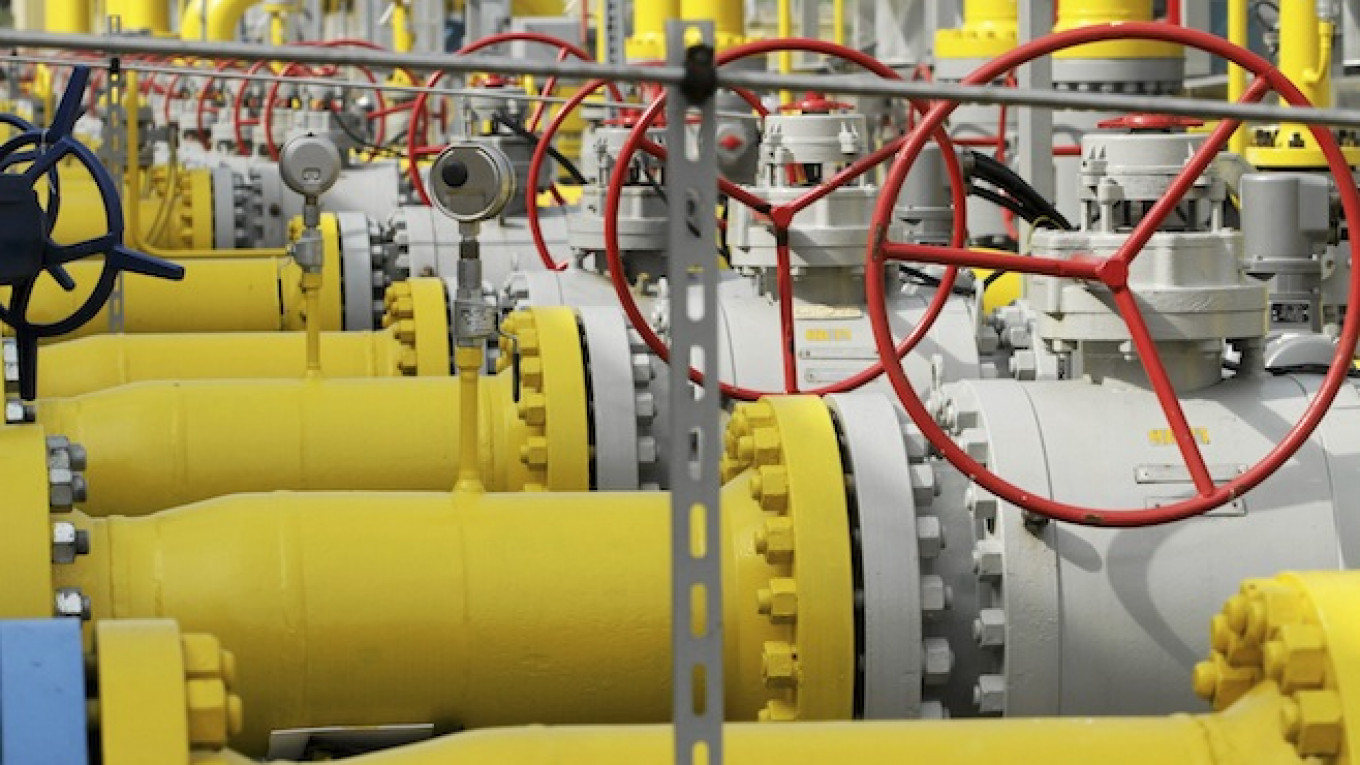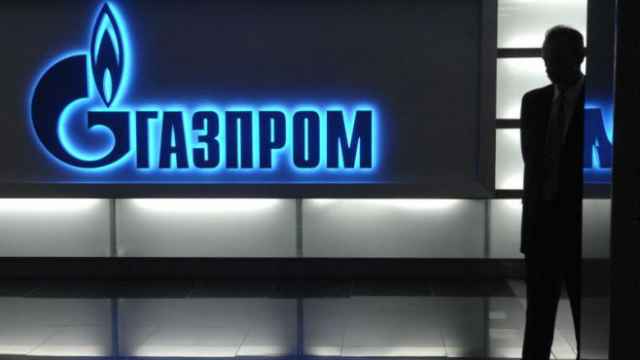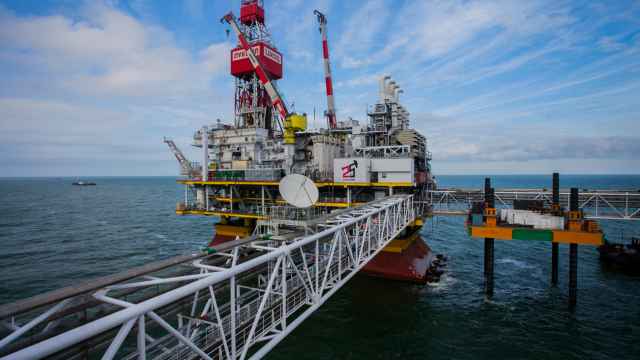Russian gas producer Gazprom is likely to record its lowest output this year since its creation a quarter of a century ago after cutting supplies to Ukraine and losing market share to domestic rivals.
Gazprom reduced its 2014 production forecast this week, and analysts regard even this figure as overoptimistic due to Moscow's battle with Kiev over gas prices and its role in the conflict in eastern Ukraine.
Falling output could put further pressure on the economy, which relies heavily on oil and gas sales and is already slowing to a crawl partly as Western sanctions start to bite.
Gazprom chief Alexei Miller told President Vladimir Putin on Wednesday that he expected production this year to be 463 billion cubic meters (bcm), a 6.7 percent decrease from the 496.4 bcm announced by Gazprom at a May presentation and down from 487.4 bcm produced last year.
Putin looked sanguine but analysts said the crisis in Ukraine and the Kremlin-controlled company's decision in June to cut gas supplies to its second-largest market after Germany were taking their toll. Miller's forecast is slightly above Gazprom's record low hit in 2009 during the global financial crisis, but the analysts expect actual 2014 production to be significantly lower than this.
The gas row is part of the broader crisis in Ukraine, which erupted earlier this year and persists, even though a ceasefire in the east has given some respite from fighting between pro-Russian rebels and government troops.
Russian gas exports are exempt from the U.S. and European Union sanctions. But Gazprom's ability to boost production in the rest of this year is limited as European customers have already largely filled up their gas storage, fearing that Russian supplies which flow via Ukraine might be disrupted by the crisis.
According to Sberbank CIS data, Europe storage capacity is 91 percent full, up from 73 percent a year ago.
Domestic Problems
Gazprom's share of the lucrative domestic market is also shrinking as other producers, such as Novatek, Rosneft and LUKoil are more flexible in setting prices and other contractual terms with customers.
According to Sberbank CIB figures, Gazprom's rivals have almost doubled their share of the Russian gas market to 35 percent this year from 18 percent in 2009, when Gazprom's production fell sharply to a low of 461.5 bcm.
Created out of the Soviet gas ministry in 1989, Gazprom has been slower than its rivals to respond to a changing market.
Rosneft chief Igor Sechin, a long standing Putin ally, has long called for Gazprom to raise its game. Last year Rosneft, together with Novatek, which is co-owned by businessman Gennady Timchenko, broke Gazprom's monopoly on liquefied natural gas exports, dealing another blow to the company's status.
The analysts at Sberbank CIB forecast Gazprom's gas production at less than 450 bcm this year, a historic low, after its output reached 282.5 bcm in January-August
"Apart from Ukraine, domestic consumption has been increasing very slowly, independent players are more aggressive, while the pie is getting smaller," Moscow-based UBS analyst Constantine Cherepanov said.
"It is easier for consumers to work with Novatek, its contractual terms are milder, and the take-or-pay clause is not that harsh," he said, adding that UBS expected Gazprom to produce 454 bcm this year.
A Message from The Moscow Times:
Dear readers,
We are facing unprecedented challenges. Russia's Prosecutor General's Office has designated The Moscow Times as an "undesirable" organization, criminalizing our work and putting our staff at risk of prosecution. This follows our earlier unjust labeling as a "foreign agent."
These actions are direct attempts to silence independent journalism in Russia. The authorities claim our work "discredits the decisions of the Russian leadership." We see things differently: we strive to provide accurate, unbiased reporting on Russia.
We, the journalists of The Moscow Times, refuse to be silenced. But to continue our work, we need your help.
Your support, no matter how small, makes a world of difference. If you can, please support us monthly starting from just $2. It's quick to set up, and every contribution makes a significant impact.
By supporting The Moscow Times, you're defending open, independent journalism in the face of repression. Thank you for standing with us.
Remind me later.






